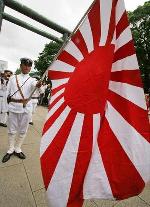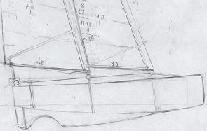 Nach dem Bekenntnis von Günter Grass, als Jugendlicher Mitglied der Waffen-SS gewesen zu sein, hatten polnische Politiker gefordert, dem Nobelpreisträger die Ehrenbürgerschaft von Danzig abzuerkennen. Wider Erwarten gibt der Stadtrat diese Anstrengungen nun auf.
Nach dem Bekenntnis von Günter Grass, als Jugendlicher Mitglied der Waffen-SS gewesen zu sein, hatten polnische Politiker gefordert, dem Nobelpreisträger die Ehrenbürgerschaft von Danzig abzuerkennen. Wider Erwarten gibt der Stadtrat diese Anstrengungen nun auf.Danzig - Völlig überraschend verzichteten die im Stadtrat von Grass' Geburtsstadt dominierenden Konservativen auf einen Antrag, Grass die Ehrenbürgerschaft abzuerkennen. Der Chef der konservativen Partei Recht und Gerechtigkeit (PiS) in der Region Danzig, Jacek Kurski, sagte, ein Antrag zur Aberkennung der Ehrenbürgerwürde hätte im Stadtrat wohl keine Mehrheit gefunden.
Es war die erste Sitzung des Gremiums nach dem Bekenntnis von Grass, mit dem der Literatur-Nobelpreisträger heftige internationale Diskussionen über seine Rolle als moralische Instanz ausgelöst hatte. In Polen hatten Kurski sowie der polnische Ex-Präsident und Anführer der Gewerkschaft Solidarität, Lech Walesa, die Front der Grass-Kritiker angeführt. Walesa hatte seine Kritik an dem 78-Jährigen jedoch zurück genommen, nachdem Grass in einem Brief an Danziger Ratsmitglieder erklärt hatte, warum er seine SS-Vergangenheit so spät enthüllt hatte.
Trotzdem lassen die die nationalkonservativen Politiker nicht locker: Sie wollen den Literatur-Nobelpreisträger zur nächsten Ratssitzung einladen, damit er dort persönlich zu seiner Vergangenheit Stellung nimmt. "Ein Wort der Entschuldigung würde die ganze Diskussion abschließen", sagte der PIS-Politiker Kazimierz Koralewski.
Allerdings fand der Antrag der Partei, Grass zu einer Diskussion einzuladen, im liberal dominierten Stadtrat keine Mehrheit. Auch die Forderung nach einer Entschuldigung von Grass lehnten die meisten der Danziger Ratsmitglieder ab. "Günter Grass muss sich für nichts entschuldigen", betonte Maciej Lisicki von der liberalen Bürgerplattform.





